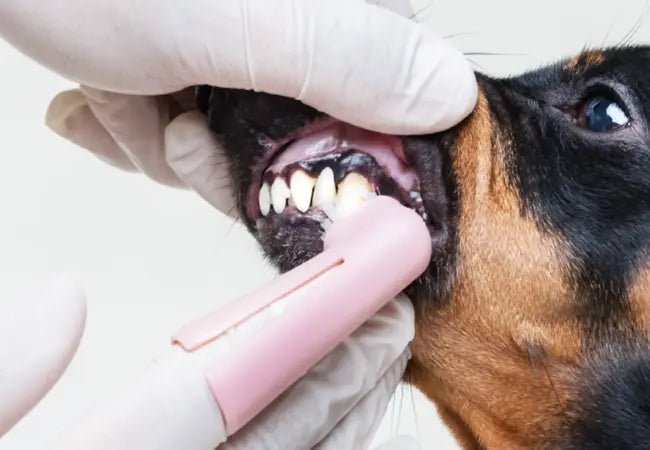2025 Vet Guide: Canine Tonsillar Squamous Cell Carcinoma 🐶👨⚕️ Essential Care & Hope

In this article
2025 Vet Guide: Tonsillar Squamous Cell Carcinoma in Dogs 🐶👨⚕️
By Dr. Duncan Houston BVSc
Hello, caring pet parents! I’m Dr Duncan Houston BVSc, back with a crucial update for 2025 on tonsillar squamous cell carcinoma in dogs. This detailed guide breaks down everything—clinical signs, diagnostics, treatment options, prognosis, and compassionate care strategies using Ask A Vet. Let’s walk this journey together with warmth and hope 🌟.
1. What Is Tonsillar Squamous Cell Carcinoma?
Tonsillar SCC originates in the flat squamous cells lining the tonsil tissue. While this tumor type is rare but significant, it ranks as the second most common oral tumor in dogs after melanoma.
Despite its rarity, it's aggressive—deeply invasive and often metastatic to lymph nodes and lungs by the time of diagnosis.
2. Who Is At Risk?
- Age: Typically affects dogs aged 7+ years.
- Breed & Size: More common in large breeds; males appear slightly overrepresented.
- Environment: Urban dogs may be at higher risk, possibly due to pollution or viral exposures.
3. Signs to Watch For 🩺
Since tonsillar masses develop in a hidden area, symptoms often appear late:
- Persistent cough
- Difficulty swallowing (dysphagia)
- Lymph node swellings in neck
- Blood-tinged saliva, drooling, foul breath
- Weight loss, lethargy, anorexia
Catching signs early during routine exams is key to better outcomes.
4. Diagnostic & Staging Protocol 🔬
- Physical Examination including oral and lymph node palpation.
- Fine-Needle Aspiration or Biopsy for definitive histopathologic diagnosis.
- Imaging: Chest radiographs / CT to check for metastasis.
- Bloodwork & Urinalysis to assess systemic health.
5. Treatment Options in 2025
Given its aggressive nature, a multimodal approach is advised:
a) Surgery
Complete tonsillectomy plus removal of affected lymph nodes is recommended, though technically challenging.
Outcomes vary: one study showed median survival at ~179 days for treated dogs , but others report improved survival when metastasis is limited—with **median survival of 243 days**, and up to **637 days** if localized to one tonsil without metastasis.
b) Radiation Therapy
Used post-surgery or for non-resectable tumors. It may help with local disease control and symptom management.
c) Chemotherapy
By itself, chemo has limited effectiveness—but combined with surgery, it may extend survival. One study: surgery + chemo yielded a median survival of **464 days**.
d) Supportive & Emerging Therapies
- Palliative care: NSAIDs, pain control, nutritional support.
- Clinical trials or targeted therapies where available.
- Cryotherapy or photodynamic therapy—mostly reserved for superficial, early lesions.
6. Prognosis & Survival
| Scenario | Median Survival | Notes |
|---|---|---|
| Surgery ± chemo (localized) | 243–637 days | Longer if unilateral without metastasis |
| Advanced/metastatic disease | ~179 days | Varies with treatment |
| Surgery + chemo (wider cases) | ~464 days | Multimodal benefit |
| Palliative-only care | ~3–6 months | Symptom relief focus |
Median survival times are statistical—each dog is unique. Some live well past expected ranges.
7. 2025 Insights from Ask A Vet
- Ask A Vet: 24/7 access for monitoring breathing, swallowing, pain levels, and side effects—plus personalized guidance on treatment decisions.
8. Recovery & Quality of Life
Supportive care is essential:
- Pain relief: NSAIDs, opioids, gabapentin.
- Soft/liquid diets, feeding tubes if needed.
- Antibiotics for aspiration pneumonia.
- Regular follow-ups and imaging every 2–3 months.
- Emotional support, comfort items, and gentle interaction.
9. Prevention & Early Detection
- Annual exams—including throat checks during dental exams.
- Seek prompt vet attention for persistent cough or dysphagia.
- Know breed and environmental risks—urban living may elevate concern.
10. Emotional Support for Families ❤️
Accepting a cancer diagnosis in your dog is heart-wrenching. Ask A Vet offers emotional coaching and decision support tools help lighten daily care routines. Don't hesitate to reach out to local peer groups or pet counselors—you’re not alone.
11. Final Thoughts
Tonsillar SCC in dogs is aggressive and challenging—but knowledge, early detection, and a tailored, compassionate treatment plan can offer your dog meaningful time with quality. With surgery, chemo, possible radiation, and full supportive care, many pets surpass expectations. And with Ask A Vet, by your side, you're supported every step of the way 💪🐾.
— Dr Duncan Houston BVSc
For continued expert support and advice, visit AskAVet.com and download the Ask A Vet app today!






